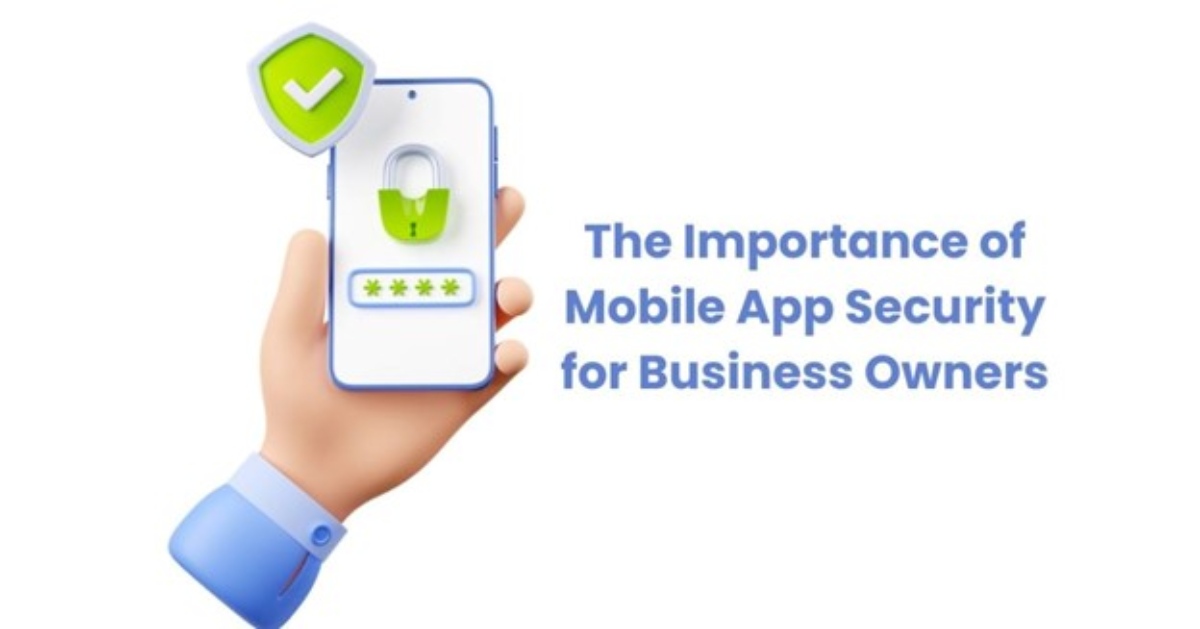In today’s digital age, mobile app security is not just a choice but a necessity for business survival. As data breaches and cyber threats loom, safeguarding sensitive information becomes paramount. This blog post delves into the importance of mobile app security, exploring risks, benefits, and key strategies for business owners.
Table of Contents
ToggleSignificance of Mobile App Security for Businesses
In an era where data breaches and cyber threats are rampant, prioritizing mobile app security is not just a choice; it’s a necessity for business survival. Mobile applications often serve as gateways to sensitive information, both for the business and its customers. A breach in the security of these apps can lead to catastrophic consequences, affecting not only financial stability but also tarnishing the brand’s reputation.
Risks of Inadequate Mobile App Security
Data Breaches and Loss:
- Unauthorized Access: Weak security measures may lead to unauthorized access to sensitive user data, such as personal information, login credentials, or financial details.
- Data Leakage: Inadequate security increases the likelihood of data leakage, where confidential information may be exposed to malicious actors.
Damage to Brand Reputation:
- Loss of Trust: If users perceive an app as insecure, it can erode trust in the brand. Negative publicity resulting from security incidents can tarnish the reputation, making it difficult to regain user confidence.
- Customer Abandonment: Users are more likely to abandon or uninstall an app if they perceive it as insecure, leading to a decline in the user base.
Financial Implications:
- Legal Consequences: Data breaches may lead to legal repercussions and regulatory fines, especially if the app fails to comply with data protection regulations. Legal battles and regulatory penalties can result in significant financial losses.
- Cost of remediation: Addressing security vulnerabilities and recovering from a breach can be expensive. Expenses may include forensic investigations, implementing security updates, and compensating affected users.
Operational Disruption:
- Downtime: Security incidents can lead to downtime as the app may need to be temporarily taken offline for investigations, updates, and recovery. This downtime can impact user experience and revenue generation.
Intellectual Property Theft:
- Code and Design Theft: Inadequate security measures may expose the app’s source code and design, making it susceptible to theft. Competitors and malicious actors could use stolen intellectual property to replicate or exploit vulnerabilities in the app.
Phishing and Social Engineering Attacks:
- User Manipulation: Insecure apps can be exploited for phishing attacks, where malicious entities trick users into revealing sensitive information through deceptive means. Social engineering attacks can also target users based on information obtained from insecure apps.
Malware Distribution:
- Compromised App Stores: Inadequate security can result in the distribution of malware through compromised app stores or unauthorized app versions. Users may inadvertently download and install malicious apps, putting their devices and data at risk.
To mitigate these risks, app developers need to prioritize robust security measures, regularly update security protocols, and conduct thorough testing to identify and address potential vulnerabilities.
Benefits of Strong Mobile App Security Measures
Protection of Sensitive Data:
- Data Confidentiality: Robust security measures safeguard sensitive user data, such as personal information, login credentials, and financial details, from unauthorized access and breaches.
- Secure Transactions: Strong security ensures the protection of financial transactions and prevents interception of sensitive data during communication between the app and servers.
Enhanced Customer Trust:
- Confidence in Security: Users are more likely to trust and continue using an app that prioritizes security. Knowing that their data is secure fosters a sense of confidence, which is crucial for building and maintaining a loyal user base.
- Positive User Experience: A secure app provides a positive user experience, reinforcing the perception that the development team values the privacy and security of its users.
Compliance with Regulations:
- Adherence to Data Protection Laws: Strong mobile app security measures help ensure compliance with data protection regulations, such as GDPR, HIPAA, and other regional and industry-specific standards.
- Avoidance of Legal Consequences: By following regulatory requirements, the app avoids legal consequences, fines, and other penalties associated with non-compliance, contributing to the app’s overall stability.
Prevention of Financial Loss:
- Avoidance of Data Breach Costs: Strong security reduces the risk of data breaches, mitigating the financial implications associated with addressing security incidents, legal battles, and potential fines.
- Preservation of Revenue Streams: A secure app is less likely to experience user abandonment due to security concerns, helping to maintain a consistent user base and revenue streams.
Protection Against Cyber Threats:
- Mitigation of Cyber Attacks: Robust security measures, such as encryption and authentication protocols, help mitigate the risk of cyber attacks, including phishing, malware distribution, and other malicious activities targeting the app.
- Timely Identification of Threats: Security measures, such as intrusion detection systems, enable timely identification and response to potential security threats before they can cause significant harm.
Brand Image and Competitiveness:
- Positive Brand Image: Strong mobile app security contributes to a positive brand image, distinguishing the app as reliable, trustworthy, and committed to user security.
- Competitive Advantage: A secure app can be a competitive differentiator, attracting users who prioritize security and privacy in their app selection.
Investing in strong mobile app security measures not only protects sensitive data but also enhances customer trust, ensures regulatory compliance, prevents financial losses, guards against cyber threats, and contributes to a positive brand image and competitiveness in the market.
Key Strategies for Enhancing Mobile App Security
Here are some key strategies for improving mobile app security:
Use of Encryption:
- Data Encryption: Implement end-to-end encryption to protect sensitive data during transmission, ensuring that even if intercepted, the data remains unreadable to unauthorized parties.
- Storage Encryption: Employ encryption for data stored on devices, securing information at rest and preventing unauthorized access in case of device theft or loss.
Regular Security Audits and Updates:
- Routine Security Audits: Conduct regular security audits to identify vulnerabilities, weaknesses, and potential threats within the app. This helps in proactively addressing issues before they can be exploited.
- Timely Software Updates: Stay current with security patches and updates for both the app and any third-party libraries or frameworks used. Timely updates help fix known vulnerabilities and enhance overall security.
Employee Training on Security Best Practices:
- Security Awareness Training: Provide comprehensive training to employees, including developers, on security best practices. This includes understanding potential risks, recognizing phishing attempts, and following secure coding practices.
- Access Control Policies: Implement and educate employees about access control policies, ensuring that only authorized personnel have access to sensitive information and critical systems.
Secure Authentication Mechanisms:
- Multi-Factor Authentication (MFA): Implement MFA to add a layer of security beyond traditional username and password authentication, reducing the risk of unauthorized access.
- Biometric Authentication: Utilize biometric authentication methods, such as fingerprint or facial recognition, for enhanced user identity verification.
Secure Network Communication:
- Secure Protocols: Use secure communication protocols (e.g., HTTPS) to encrypt data exchanged between the app and servers, protecting against man-in-the-middle attacks.
- Network Security Measures: Implement measures like firewalls to control and monitor incoming and outgoing network traffic, adding an extra layer of defense against unauthorized access.
Code Review and Static Analysis:
- Regular Code Reviews: Conduct regular code reviews to identify and rectify security vulnerabilities in the application’s source code.
- Static Code Analysis: Use automated tools for static code analysis to identify potential security flaws early in the development process.
Secure Data Handling:
- Minimal Data Collection: Only collect and retain the data necessary for the app’s functionality, reducing the potential impact of a data breach.
- Secure Data Transmission: Ensure secure handling of data during input, processing, and output stages to prevent data tampering or injection attacks.
Incident Response Planning:
- Develop an Incident Response Plan: Have a well-defined incident response plan in place to efficiently address and mitigate the impact of security incidents.
- Regular Testing of Response Procedures: Regularly test and update incident response procedures to ensure effectiveness in real-world scenarios.
Vendor and Third-Party Security Assessment:
- Assess Third-Party Services: Evaluate the security practices of third-party services and libraries used in the app. Choose vendors with strong security postures and regularly assess their security measures.
By incorporating these strategies into the development and maintenance of mobile apps, organizations can significantly enhance their security posture, reduce vulnerabilities, and better protect user data and privacy.
Conclusion
Mobile app security is vital for safeguarding sensitive data, maintaining customer trust, complying with regulations, preventing financial losses, mitigating cyber threats, and enhancing brand image and competitiveness.
In today’s digital landscape, business owners must prioritize mobile app security to protect sensitive data, maintain customer trust, and navigate the evolving threat landscape effectively. As technology advances, so do cyber threats, making robust security measures a non-negotiable aspect of app development and maintenance.
Author Image:

Author Bio:
Sanjay Panchal, Director of IIH Global, a leading UK-based custom software and mobile app development company, thrives on turning innovative ideas into cutting-edge solutions. His passion for excellence drives him to lead his team in delivering high-quality mobile apps, CRM systems, and web applications for a diverse clientele, ranging from agile startups to established enterprises. Sanjay’s commitment to exceeding expectations has earned IIH Global a reputation for exceeding expectations and building long-lasting partnerships with its clients.
Related posts
Hot Topics
Understanding TruthFinder’s Background Check Features
Background checks have become increasingly relevant for personal safety and information gathering in digital environments. TruthFinder offers comprehensive background check…
How MLOps Is Shaping the Future of AI in Business
Artificial intelligence (AI) has evolved from a futuristic idea to a strategic necessity for companies looking to innovate, grow, and…



